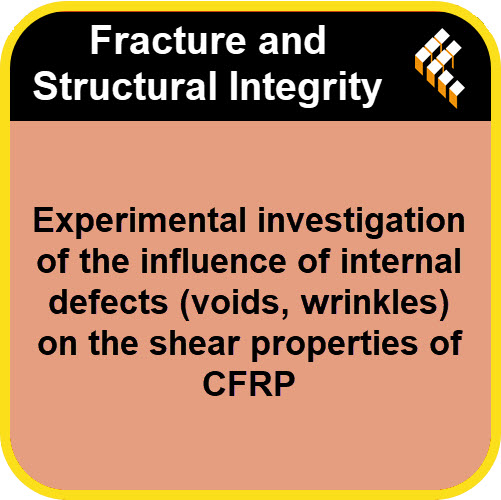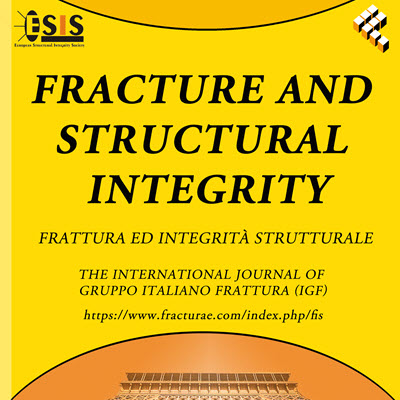Fracture and Structural Integrity: The Podcast
Stay at the cutting edge of fracture mechanics and structural integrity research with the official podcast of the Fracture and Structural Integrity journal. Join us for insightful interviews with top researchers, in-depth discussions of groundbreaking papers, and explorations of emerging trends in the field.
RSS Spotify YouTube Amazon Music
Experimental investigation of the influence of internal defects (voids, wrinkles) on the shear properties of CFRP
2025-10-16
https://www.fracturae.com/index.php/fis/article/view/5522
The study focuses on examining the impact of internal manufacturing defects (voids and wrinkles) on the mechanical behavior of structural carbon fiber reinforced polymers (CFRP) under shear loading. Specimens of VKU/VSE1212 material with a [0/90]10 layup were artificially embedded with defects: circular voids (Ø 20 mm) and square voids (20×20 mm) at a concentration (area fraction) of 5.3%, as well as wrinkles increasing thickness by 10%. In-plane shear tests were conducted according to ASTM D7078 using a Vic-3D system for digital image correlation (DIC) to record strain fields. Results revealed that voids at 5.3% concentration (area fraction) reduced shear strength by 2.2% (from 72.1 MPa to 70.5–70.6 MPa, regardless of geometry, indicating that the defect area, rather than its shape, governs the failure response. The shear modulus of void-containing specimens (~4.48 GPa) did not differ from defect-free specimens (~4.49 GPa). Wrinkles increased the shear modulus to 5.39 GPa due to added layers but reduced strength by ~3% (to 69.9 MPa). DIC analysis confirmed the method’s efficacy for tracking strain localization in defect zones. Failure modes across all specimens involved vertical crack formation between V-notches. These results help systematize knowledge on of manufacturing defects on CFRP shear properties and hold practical significance for refining design tolerances in critical components, developing non-destructive testing methods, optimizing manufacturing processes.
DownloadFiletype: MP3 - Size: 3 MB - Duration: 14:46m (320 kbps 44100 Hz)
Powered by Podcast Generator, an open source podcast publishing solution | Theme based on Bootstrap
